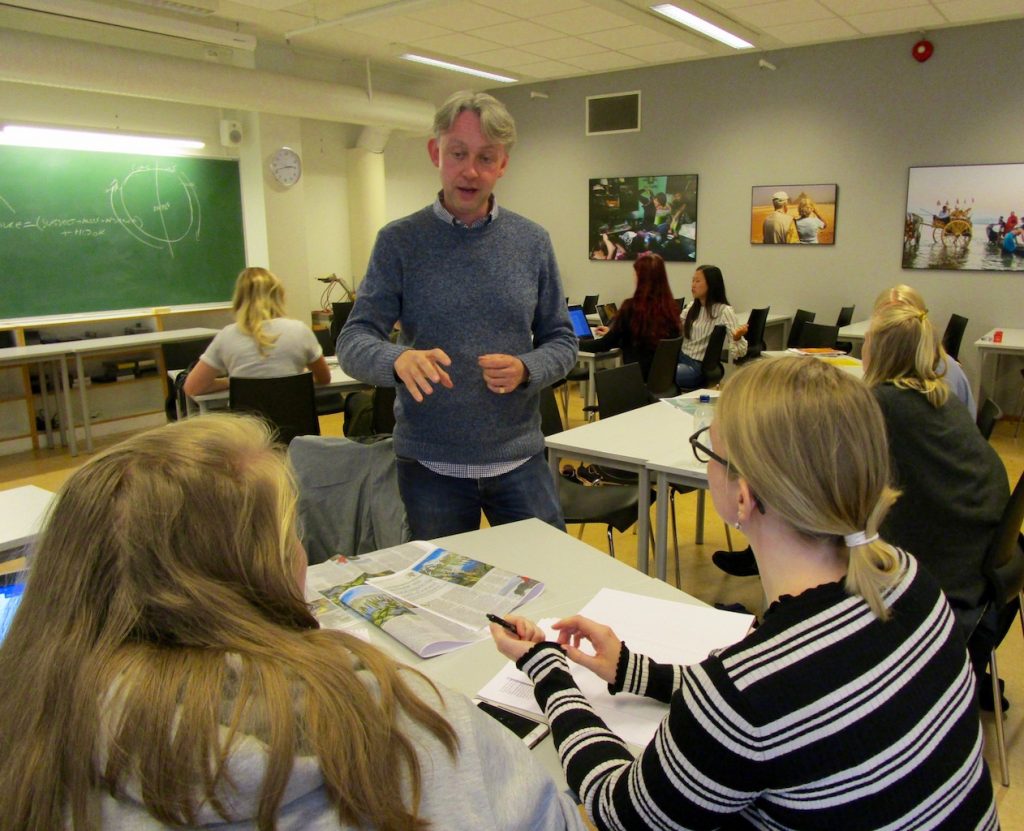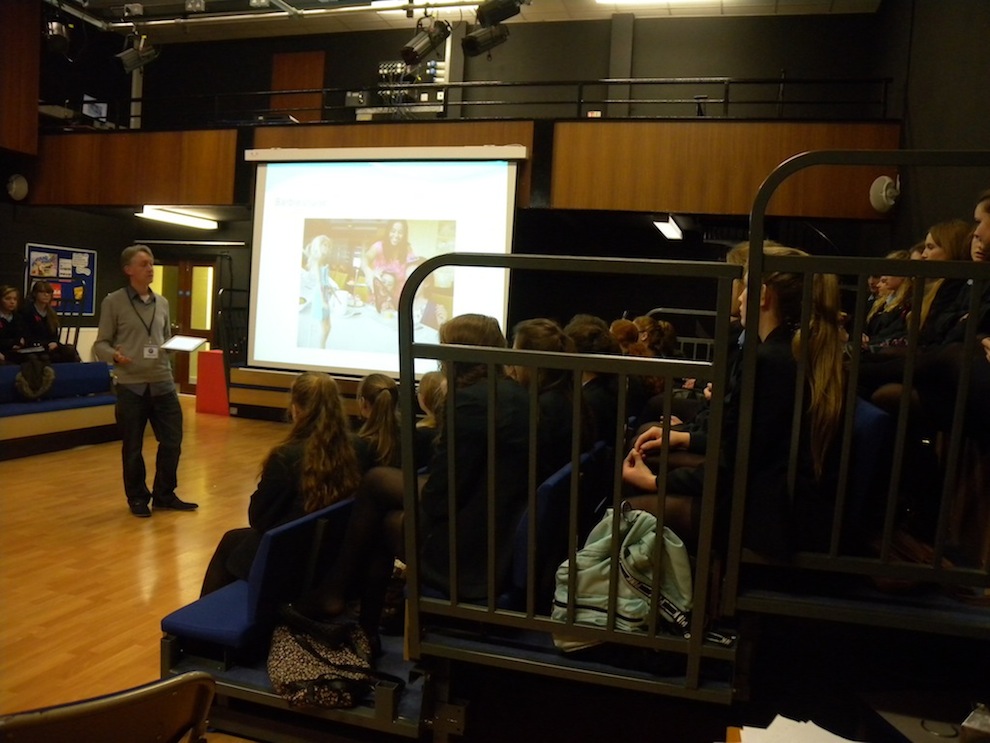
* Have you signed up for my new monthly newsletter? Subscribe at the home page.
Matthew Draycott is not planning to mince his words.
When the new undergraduates arrive for an induction-week pep talk on making the most of their time at university this September, the Enterprise Associate at the Centre for Entrepreneurial Learning plans to give them both barrels.
“If you spend your time in the pub for three years, then it doesn’t matter if you get a 2:1,” he says, sipping coffee in the university coffee bar.”
“Your degree is no longer the only thing you need to leave university with. You need a set of practical experiences that will give you a competitive edge.”
The department where Draycott works aims to teach students about enterprise, making them more employable and inspiring many to start their own business. “The trend is for students to come to us earlier,” he adds.
“We have seen a big increase in numbers of first years, especially from IT courses, in recent years.”
Extra-curricular activities
Of course, developing interests outside of your course is nothing new.
From playing for a university sports team to chairing the debating society, one of the best aspects of undergraduate life has always been the chance for students to broaden their horizons.
But with graduate unemployment currently at its highest level in over a decade, savvy students are increasingly realising that getting a job is not just about good grades, it’s about making the most of those extra-curricular activities.
“Students now view the university experience as something that leads to work.”
Ed Marsh, National Union of Students (NUS) Vice President for Union Development, adds: “While students are often under increasing time pressure, many having to work part time to fund their studies, extra-curricular activities are now a big part of their thought process.”
So you want to get involved. But what are the best options for you?
Marsh says that, while traditional sports, politics and societies remain popular, he sees more students doing more community outreach work, especially at inner-city universities with more diverse students populations.
During his own undergraduate days at the University of Hull, he volunteered with local schools and nursing homes for the elderly.
Practical skills
Another growth area is student enterprise with students looking to use new skills from their course before they actually graduate.
For the aspiring Sir Alan Sugars and Richard Bransons, it’s a natural progression towards social enterprise. Hushpreet Dhaliwal, Chief Executive, National Consortium of University Entrepreneurs (NACUE) says:
“We can’t be a complacent generation. It’s about being the cause, not the effect.”
“Many students arrive at university not knowing what they want to do in life. You have to expose yourself to all aspects of university life, create your own personal value and build networks from the start,” she adds.
Student-led NACUE works over 70 university enterprise societies across the UK and supports over 85 universities to stimulate student businesses. They recently advised on an Apprentice-style competition, led by students from King’s College London Business Club working with eOffice.
Dhaliwal advocates the smart of use of websites such as Twitter and LinkedIn.
“Social networking helps to build awareness amongst the wider student enterprise community. It offers a fast and efficient means for students expose themselves to new opportunities in career development,” she says.
Global view
But perhaps the smartest students of all are the ones seeing the global picture. University courses in modern languages traditionally include a year of study or work experience overseas as a mandatory third year off campus.
But recent research by the UK Council for International Student Affairs (UKCISA) estimates some 22,000 UK students are currently studying in other countries.
Maastricht University in the Netherlands is fast becoming a hotspot for school leavers turning their backs on the British university system for its winning combination of lower course fees and grants available from the Dutch government if undergraduates work 32 hours a week while they study.
Maastricht University has been sending representatives to a sixth-form careers days over the past year and is installing a fast-track admissions scheme for prospective UK students this summer.
Ed Mash of the NUS says: “We’re competing in a global market and the costs of courses at British universities are now higher than ever. There’s real value,” he adds, “to the individual of having an international perspective.”
Back at the coffee bar, Matthew Draycott is finishing his latte and checking his Twitter account, his favourite way these days of engaging with students and communicating to them the latest news from the student entrepreneurship sector.
“University offers you a privileged three years of flexible identity, so why not do something to put yourself in a position of authority? If you can’t play rugby, be the rugby club treasurer. If you can’t play lead guitar, start managing students bands,” he says.
“Employers are not looking for standard CVs.“
He adds: “They want candidates to reference the opportunities they have grasped and created at university.”
“In short: do it while you can and make sure you have a broad experience.”
This story was first published by the Daily Telegraph in 2011 under the headline, University life: how to make the most of extra-curricular opportunities.



